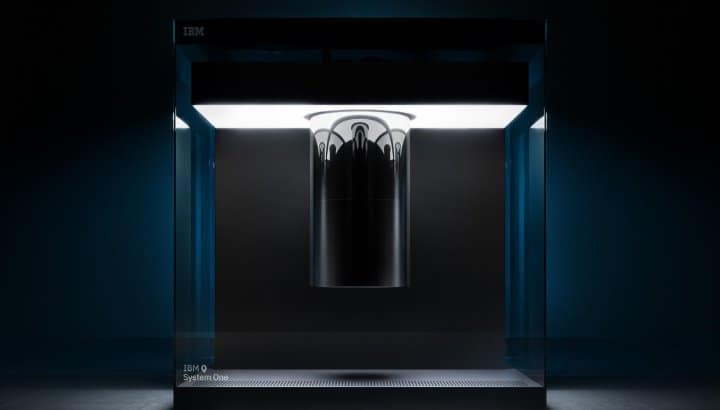IBM says it has reached a new milestone in its research into quantum computers. Never before has the tech giant achieved higher performance in this area as now with his new IBM Q System One application. achieved a result twice as high as its predecessor.
Big Blue tracks the performance of its quantum computers with the so-called Quantum Volume. This is a calculation method that includes the number of qubits, connectivity, error margins and a number of other things. The Q System One, which has a 20-qubit processor, produced, according to the tech giant, a Quantum Volume of 16. This is twice as high as its predecessor, the IBM Q, achieved. At the same time, the supplier also states that the Q System One has one of the lowest error rates of any IBM quantum computer to date.
Significant step
The milestone marks another significant step forward for quantum computers. Despite this, the practical applications of this type of high-performance computer are still far into the future. According to IBM, this will require the Quantum Volume to double every year over the next decade. This might be possible, because since 2017, the computing power of IBM quota computers has doubled every year.
If Big Blue succeeds in this, the company achieves the so-called Quantum Advantage. As soon as this is the case, there will be new practical applications for quantum computers and they will also be widely applicable. At the moment these devices are available, but mainly for research to bring the technology forward. Quantum technology is expected to be available via the cloud in the future.
Expectations for quantum computers
In any case, connoisseurs expect a lot from the technology. A quantum computer can work much faster than an ordinary computer. Thanks to qubits, a quantum computer can perform parallel calculations. Where an ordinary bit is binary and therefore has a value of 0 or 1, a qubit has both values at the same time. This increases the number of possible calculations exponentially.
In the Netherlands, competitor Microsoft is working intensively with, among others, Delft University of Technology in the field of quantum computing. Together with TU Delft, this tech giant recently opened the Microsoft Quantum Lab.
This news article was automatically translated from Dutch to give Techzine.eu a head start. All news articles after September 1, 2019 are written in native English and NOT translated. All our background stories are written in native English as well. For more information read our launch article.